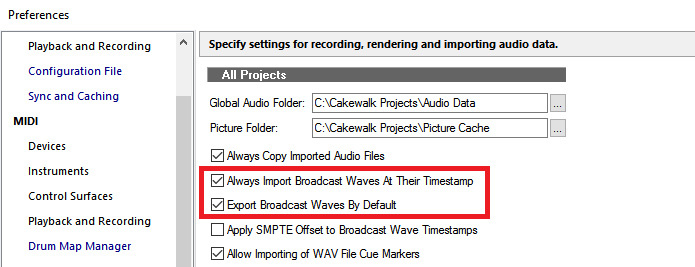Drivers Start Your Engines Wav

General: Programming irrKlang: Short full examples: Welcome to the irrKlang API documentation. This page should give you a short overview over irrKlang, the high level audio library. In this documentation files you'll find any information you'll need to develop applications with irrKlang using C++. If you are looking for a tutorial on how to start, you'll find some on the homepage of irrKlang at or inside the SDK in the directory. The irrKlang library is intended to be an easy-to-use 3d and 2d sound engine, so this documentation is an important part of it. If you have any questions or suggestions, please take a look into the ambiera.com forum or just send a mail. IrrKlang is a high level 2D and 3D cross platform sound engine and audio library.
Free car sound effects. Free car sounds available to download in WAV and MP3 formats. Race cars, hot rods, NASCAR, drivebys, engine starts. All kinds of.
It has a very simply object orientated interface and was designed to be used in games, scientific simulations, architectural visualizations and similar. Engine->( 'myMusic.mp3', true); To stop this looping sound again, use engine-> to stop all sounds, or if you only want to stop that single sound. Shows how to get to that ISound interface. To influence parameters of the sound such as pan, volume or playback speed during runtime, to get the play position or stop playback of single playing sounds, you can use the interface.
(but also play3D) returns a pointer to this interface when its third ('startPaused') or fourth ('track') parameter was set to true. * shootSound = engine->( 'shoot.wav'); * shootSound2 = engine->(shootSound, 'silentShoot'); shootSound2->(0.1f); // shootSound will now be played with 100% of its sound volume by default, // shootSound2 will now be played 10% of its sound volume by default.
It is // also possible to play it using engine->play('silentShoot'), now. Using addSoundSourceFromMemory(), it is also possible to play sounds back directly from memory, without files. Of course, it is not necessary to use sound sources. Using, it is possible to change the settings of all sounds, too. But using sound sources, it is not necessary to do this every time a sound is played.
There is nothing difficult in playing sounds in 3D using irrKlang: Instead of using, just use, which takes a 3D position as additional parameter. Position(0,0,0); // position of the listener lookDirection(10,0,10); // the direction the listener looks into velPerSecond(0,0,0); // only relevant for doppler effects upVector(0,1,0); // where 'up' is in your 3D scene engine->(position, lookDirection, velPerSecond, upVector); irrKlang manages the memory usage of sounds by itself, so usually, you don't have to care about memory management. But if you know you need to reduce the amount of used memory at a certain point in your program, you can do this. Engine->(pointerToSomeSoundSource); // or: engine->( 'nameOfASoundFile.wav'); Note: Only removing buffered sounds will reduce the amount of memory used by irrKlang, streamed sounds don't occupy a lot of memory when they are not played.
In order to wait for a sound to be finished, it is simply possible to poll. Another way would be to constantly use to test wether a sound with that name or source is currently playing. But of course, an event based approach is a lot nicer. That's why irrKlang supports sound events. The key to sound events is the method of the interface (See on how to get the ISound interface). * snd = engine->(pointerToMemory, memorySize, 'nameforthesound.wav'); // play sound now engine->(snd); Note: It is also possible to overwrite the file access directly, don't use this Memory Playback feature for this.
Torrent nuovo cinema paradiso soundtrack music1503930. Nuovo Cinema Paradiso- Soundtrack details. Home Explore Movies Explore Composers Resource Directory Forums Contact Us About Us. Cinema In Fiamme (Cinema On Fire.
See for details. IrrKlang supports the effects Chorus, Compressor, Distortion, Echo, Flanger Gargle, 3DL2Reverb, ParamEq and WavesReverb, when using the sound driver, which selected by default when using Windows. Using the interface, you can optain the interface if the sound device supports sound effects and the last parameter ('enableSoundEffects') was set to true when calling play2D(). #define IRRKLANG_STATIC #include Of course, IRRKLANG_STATIC can also simply be defined in the project/compiler settings instead of in the source file. IrrKlang uses the default sound device when playing sound when started without parameters. But if you want irrKlang to playback sound on one specific sound device, you may want to enumerate the available sound devices on your system and select one of them. Use for this.

This example code shows how to print a list of all available sound devices on the current system and lets the user choose one of them. // enumerate recording devices and ask user to select one * deviceList = (); printf( 'Devices available: n n'); for ( int i=0; i(); ++i) printf( '%d:%s n', i, deviceList->(i)); printf( ' nselect a device using the number (or press any key to use default): n n'); int deviceNumber = getch() - '0'; // create recording device with the selected driver const char* deviceID = deviceList->(deviceNumber); * engine = (); * recorder = (engine,, deviceID); irrKlang supports unicode on all operating systems. Internally, it uses UTF8, and all functions accepting strings and file names take UTF8 strings. If you are running irrKlang on Windows, and are using the UNICODE define or using wchar_t* strings directly, you can do this as well. Use the irrKlang provided function to convert your wchar_t* string to a char* string.